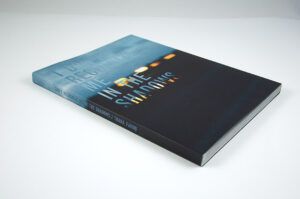genres
I don’t recognize me in the shadows
€30,00
The work explores Thana’s journey leaving war-torn Yemen and experiencing the asylum in the Netherlands. She made this book to figure out how everything happened – to figure out the war, the escape, the transition, and the unfamiliar.
Author(s): Thana Faroq
Appeared on: November 9th 2020
Language: English
Pages: 168
Size: 234 x 310 mm
Edition: Swiss bound
ISBN: 9789462263932
Year: 2020
Photography: Thana Faroq
Publisher: Lecturis
Design: Syb
I don’t recognize me in the shadows
This is real
The war is real
My departure from Yemen is real
Leaving my family behind is real
My resettlement in the Netherlands is real
Moving from one place to another is real
My clothes that no longer hold smells familiar to me are real
My Syrian roommate who attempted to cross the Turkish border five times is real
My Kurdish roommate who sings in the shower is real
This sorrowful song she plays in the room repeatedly is real
All this noise in the world is real
The colors of the autumn Dutch landscape are beautiful and real
This cold is real
This pause for a normal life and vibrant bouquets of dreams is real
This pain here is real. Journal entry 2017
Thana decided to make this book to figure out how everything happened – to figure out the war, the escape, the transition, and the unfamiliar. It’s not easy to talk about trauma while you’re living in it because you can’t recognize it. Creating this work enabled her to tackle the trauma and to confront it her own terms. The images and the words serve as a record, a healing method to register and validate her emotions and experiences during the transition into the unknown.
“I wanted to offer my own version of the story, one that is infused with my resilient spirit_unbroken, unfailing and devoid of self-pity. I wanted to climb the fences, and I did”
Throughout this journey, Thana took on many roles – She is the storyteller, the photographer, and the person who has gone through these experiences of displacement and asylum. It is empowering to tell your own story to the world. It is liberating. She was not alone and so she hoped to visually articulate people’s struggles to leave countries where conditions of violence, war, and aggression are prevalent. She focused on reflections of personal moments including handwritten testimonies that capture the hopes, fears, dreams, and struggles.
Additional information
| Weight | 1100 g |
|---|---|
| ISBN | 9789462263932 |




